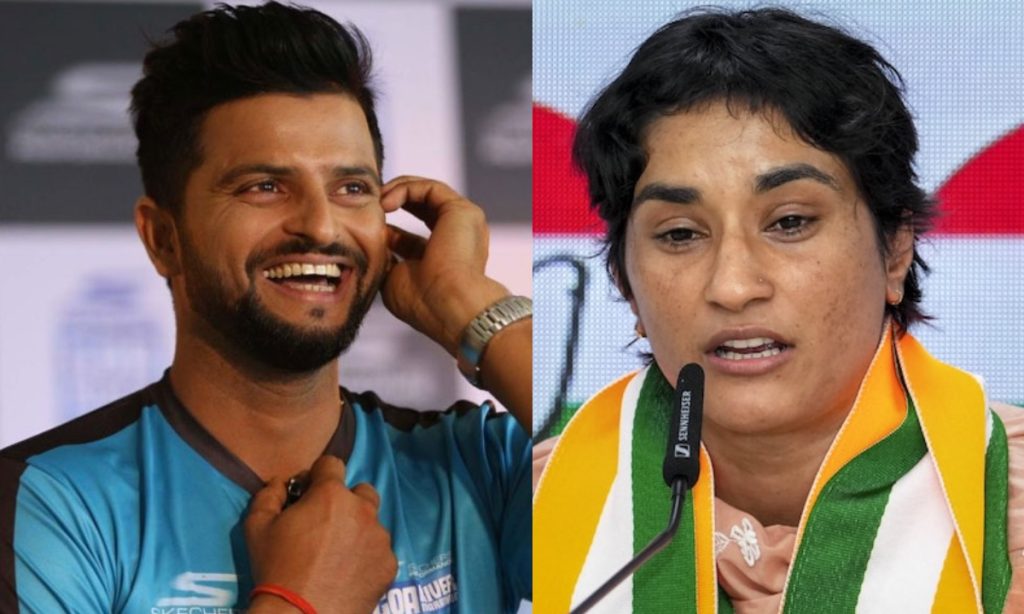In an event that has sparked discussions across sports and political circles, recent interaction of Suresh Raina with the media left many stunned. When asked about his thoughts on wrestler Vinesh Phogat joining the Haryana Congress ahead of the state’s assembly elections, Raina’s response was not just unexpected but also a reflection of the complex interplay between sports, politics, and public persona in India.
The setting was the Sheshnag Temple in Baghpat, Uttar Pradesh, where Suresh Raina was visiting, a place far removed from the cricket field but deeply embedded in the cultural fabric of India. Here, amidst the spiritual ambiance, a journalist posed a question that bridged two worlds: sports and politics. Raina’s reply, “Main kyu jaunga?” (Why would I go?), was blunt, indicating a disinterest or perhaps a stance on not mixing his cricketing legacy with political commentary.
I don’t know Vinesh Phogat, Which party has she joined, then why would I go to campaign. I have come here only to visit the temple. Raina Said.
Vinesh Phogat, known for her wrestling prowess and her vocal stand against various issues within the sports community, including allegations against the Wrestling Federation of India’s chief, has always been in the public eye. Her decision to enter politics, aligning with the Congress party, was seen by many as a natural progression of her activism. However, response of Suresh Raina highlighted a different perspective, one where sports figures might prefer to keep their political opinions private or separate from their public sports persona.
This interaction brings to light several underlying themes. Firstly, it underscores the expectation placed on sports personalities in India to comment or engage with political issues. Athletes, often seen as role models, find themselves at the intersection of public life where their silence or comments on non-sporting issues can be equally scrutinized. Choice of Suresh Raina to not delve into Phogat’s political move could be interpreted as maintaining the sanctity of his cricketing identity or a personal stance on not mixing sports with politics.
Secondly, Raina’s reaction might also reflect a broader sentiment among some sports figures towards the politicization of sports or the use of sports achievements as a springboard for political careers. While figures like Phogat or even cricketers like Navjot Singh Sidhu have transitioned into politics, Raina’s stance might represent a segment of athletes who prefer to keep these realms separate, focusing on their sport’s contribution to society rather than political activism.
The media’s surprise at Raina’s response also speaks to the public’s curiosity about how sports stars perceive each other’s forays into different arenas. In a country where cricket is often dubbed a religion, and cricketers are its high priests, their views on other sports or political movements carry weight. Raina’s choice to remain apolitical in this context might encourage a discussion on whether sports figures should be expected to comment on every societal issue or if they should be allowed the space to choose their battles.
Suresh Raina’s brief yet impactful interaction with the media regarding Vinesh Phogat’s political move serves as a microcosm of the larger debate on the roles sports figures play in society. It’s a reminder that while many might look to athletes for guidance or opinions beyond the field, not all are willing or feel obligated to step into the political arena. Raina’s stance might just be a call for sports to remain sports, where achievements on the field speak louder than words off it.

